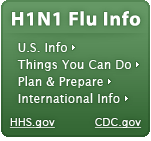Corresponden a 'Simple', ensayo fase III
30 de abril 2020. 2:15 pm
Nuevos resultados del ensayo ‘Simple’ demuestran que los pacientes que recibieron tratamiento con
remdesivir durante 10 días consiguieron una mejoría similar en su estado clínico en comparación con aquellos que tomaron remdesivir durante 5 días. Asimismo, no se identificaron nuevos efectos adversos con remdesivir en ninguno de los grupos de tratamiento.
El ensayo ‘Simple’ es un ensayo abierto fase III que evalúa los resultados del antiviral en investigación remdesivir administrado durante 5 y 10 días en pacientes hospitalizados con manifestaciones graves de Covid-19.
Así lo ha anunciado
Gilead Sciences, que planea enviar los datos completos para su revisión y publicación en una revista científica revisada por pares en las próximas semanas. Tal y como ha apuntado su director médico, Merdad Parsey, “a diferencia del desarrollo tradicional de fármacos, actualmente estamos intentando evaluar un medicamento en el marco de una pandemia global en constante evolución. Múltiples estudios están ayudando a determinar si remdesivir es un tratamiento seguro y efectivo para Covid-19, y cómo utilizarlo de la mejor forma”.
Según ha explicado, los resultados de este estudio complementan los datos procedentes del estudio de remdesivir controlado con placebo realizado por el Instituto Nacional de Alergias y Enfermedades Infecciosas, y además ayudan a determinar la duración óptima del tratamiento con remdesivir.
En concreto, el estudio demuestra la posibilidad de que algunos pacientes sean tratados con un régimen de 5 días, lo que permitiría poder expandir significativamente el número de pacientes a tratar con nuestro suministro actual de remdesivir. “Esto es particularmente importante en el contexto de una pandemia, para ayudar a los hospitales y profesionales sanitarios a tratar a más pacientes que necesitan atención urgente”, ha apostillado Parsey.
Aún no aprobado
Actualmente, remdesivir aún no ha sido aprobado en ningún país y aún no se ha demostrado que sea seguro o efectivo para el tratamiento de Covid-19. En este sentido, el trabajo evaluaba si un ciclo más corto de 5 días de remdesivir lograría resultados de eficacia similares al régimen de tratamiento de 10 días, utilizado en múltiples estudios en curso.
Los objetivos secundarios incluían porcentaje de eventos adversos y otras medidas adicionales de respuesta clínica en ambos grupos de tratamiento. Se requirió que, al momento del ingreso al estudio, los pacientes tuvieran evidencia de neumonía y niveles de oxígeno reducidos que no requerían ventilación mecánica. La mejoría clínica se definió como la mejora en dos o más puntos desde el inicio en una escala predefinida de siete puntos, que van desde el alta hospitalaria hasta el fallecimiento.
Al mismo tiempo, se estimó que los pacientes lograron la recuperación clínica si ya no necesitaban oxigenoterapia y atención médica o si eran dados de alta del hospital. En este estudio, el tiempo de mejoría clínica para el 50 por ciento de los pacientes fue de 10 días en el grupo de tratamiento de 5 días y de 11 días en el grupo de tratamiento de 10 días.
En el día 14, el 64,5 por ciento de los pacientes en el grupo de tratamiento de 5 días y el 53,8 por ciento de los pacientes en el grupo de tratamiento de 10 días, lograron la recuperación clínica. Los resultados clínicos variaron según la geografía.
Fuera de Italia, la tasa de mortalidad general en el día 14 fue del 7 por ciento en ambos grupos de tratamiento, con un 64 por ciento de pacientes que experimentaron una mejoría clínica en el día 14 y un 61 por ciento de pacientes dados de alta del hospital.
Tratamiento temprano
Llevando a cabo un análisis exploratorio, los pacientes que recibieron remdesivir dentro de los 10 primeros días desde el inicio de los síntomas habían mejorado los resultados en comparación con los tratados después de más de 10 días con síntomas.
Por otro lado, al agrupar los datos en los brazos de tratamiento, para el día 14, el 62 por ciento de los pacientes tratados de manera temprana pudieron ser dados de alta del hospital, en comparación con el 49 por ciento de los pacientes que fueron tratados más tardíamente.
En vista de los resultados, la investigadora Aruna Subramanian considera que “estos datos son alentadores, ya que indican que los pacientes que recibieron un tratamiento más corto de 5 días con remdesivir experimentaron una mejoría clínica similar a los pacientes que recibieron un periodo de tratamiento de 10 días. Si bien aún se necesitan datos adicionales, estos resultados ayudan a comprender mejor cómo se puede optimizar el tratamiento con remdesivir, si se demuestra que es seguro y efectivo”.
Remdesivir fue generalmente bien tolerado en los grupos de tratamiento de 5 y 10 días. Los eventos adversos más comunes que ocurrieron en más del 10 por ciento de los pacientes en cualquiera de los grupos fueron náuseas e insuficiencia respiratoria aguda.








































